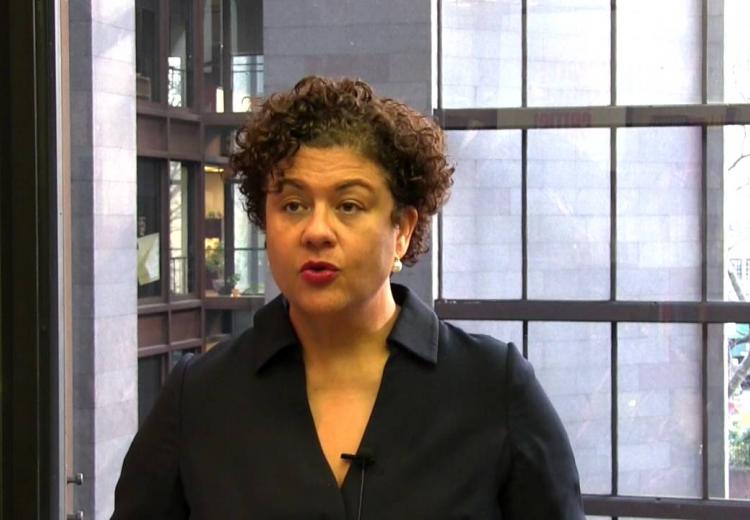Incredible Bridges: Poets Creating Community

“Praise Song for the Day” by Elizabeth Alexander
"The lyric poem seeks to mesmerize time. It crosses frontiers and outwits the temporal. It can bridge the gulf between people otherwise unknown to each other."
—Edward Hirsch
The Academy of American Poets and the EDSITEment Project at the National Endowment for the Humanities welcome you to engage with an online initiative, “Incredible Bridges: Poets Creating Community,” that brings contemporary poetry resources to your students.
The title of the project is a response to a call that Poet Laureate Juan Felipe Herrera issued during a 2015 National Book Festival interview at the Library of Congress, in which he identified the civic responsibility of poets in America today, with the challenge: “Let’s create incredible bridges.”
“Incredible Bridges” enlists the voices of America’s finest contemporary poets, each delivering a poem that has been selected in support of the National Endowment for the Humanities Chairman’s initiative, The Common Good. These poems address the nation’s need to achieve new forms of community and understanding, in light of the changing demographics in many communities and the challenges required to overcome cultural and political polarization.
The series of poems present a number of different perspectives that together speak to both the differences that define us and the unity we desire. These are poets breaking down walls and using poetry as a means to build connections with each other—offering a window into the experience of people who are not exactly like ourselves.
The nine “Incredible Bridges” companion lesson plans, written by Madeleine Fuchs Holzer, educator-in-residence at the Academy of American Poets, contains activities geared to secondary-level students in grades 6–12. Each lesson is built around an audio or video recording and contains activities for use with students to help them enter and experience the poem aligned to College and Career Readiness Anchor Standards for Reading and Speaking and Listening.
The Incredible Bridges lessons along with the audio/video recording of the poets reading the poems can be accessed below.
Nine lessons and recordings
(1) “Gate A-4,” Naomi Shihab Nye relates an encounter during a long delay at the airport where a community is created by sharing language, compassion, and traditional food.
2) “From Citizen, VI [On the train the woman standing],” Claudia Rankine recounts a situation on a train which looks at how members of a community are treated, not only in the eyes of the law, but in the eyes of one another.
(3) “Every Day We Get More Illegal,” Juan Felipe Herrera gives voice to the feelings of those “in-between the light” who have ambiguous immigration status and work in the United States.
(4) “Cotton Candy,” Edward Hirsch reflects back to a moment from his boyhood in Chicago recalling his grandfather, bridging the gap between generations, and transcending time.
(5) “The Great Migration,” Minnie Bruce Pratt takes us to an evening Spanish language class as she illustrates the ebb and flow of migrations that are a part of our common heritage as Americans.
(6) “Praise Song for the Day,” Elizabeth Alexander echoes Walt Whitman’s classic poem, “I Hear America Singing," with its democratic vision of the varied occupations that make up our nation. Alexander’s inaugural poem exhorts us to walk forward together with a loving spirit.
(7) “Peaches,” Adrienne Su ruminates on a peach harvest, as she come to terms with the difficulties immigrant families have navigating American life when you are both “stranger and native.”
(8) “Translation for Mamá,” Richard Blanco uses both English and Spanish language translations to honor the bridge between his mother’s new identity and the losses she faced in emigration.
(9) “Remember,” Joy Harjo holds up all the inhabitants of the earth and sky as a model for inclusiveness, with a reminder to pay attention to how we are all connected.
